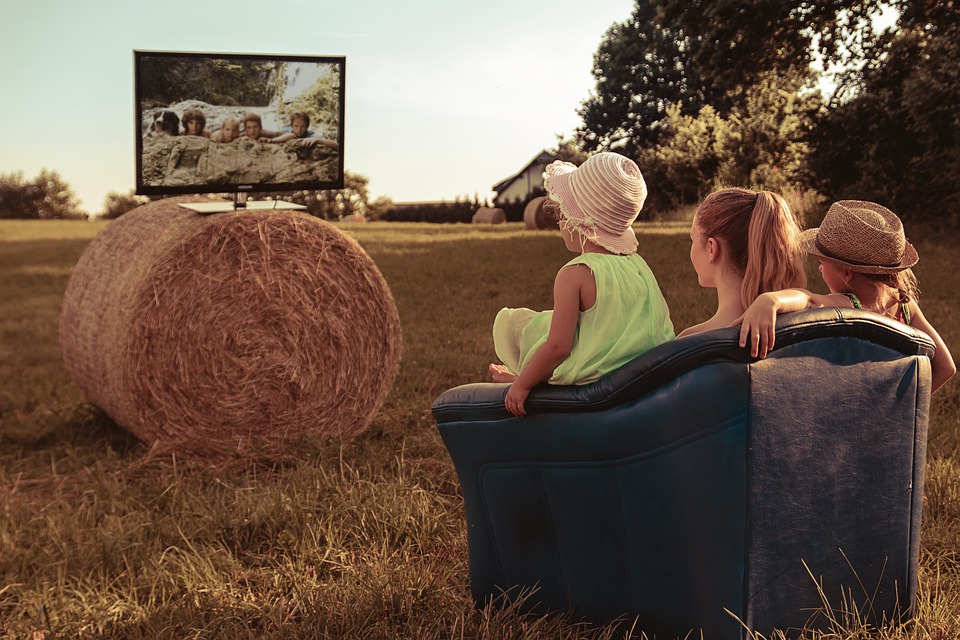This is surely one of the hottest, and at the same one of the most difficult, topics regarding parenting today. No one person can give a perfect protocol of what is right – if there even is such a thing. Nor am I going to express judgements about various approaches here. I know moms and dads who almost never show a phone or a TV to their toddlers and those who say their kids know how to use them better than they do - and all their children are wonderful. Well, surely we’ll all agree that having a young child constantly glued to a screen is not perfectly beneficial, but I won’t go deeper into detail of this particular question here. You can read the American Academy of Pediatrics' view here.
Is it just about children?
Today, we can have the whole world of entertainment, information and communication in our hands all the time. Not only children, but also adults are dealing in different ways with this new possibility (addiction?) of acquiring information or communicating online at any given moment. I’ve sometimes found myself wanting want to ask my teenage sister not to use her phone at the dining table and join the conversation, but felt it would be wrong given that other adults were doing the same. Surely, the problem of excessive screen time is not limited only to young children – it’s just that there could be more potential consequences for young minds.
A video about AAP Family Media Use Plan tool you could use to track your family screen time.
Reality vs. the Enchanted World of Information
Today, surely, the specifics got much more complex than in the past. But the tendency is not totally new.
My mother would be offended when family members read a book when eating at the table: “This is disrespectful as it shows you have no interest in talking to us”, she used to say. These words stayed in my mind and I used to have the same conversation (still referring to books) with some of my close friends I was sharing a meal with. Who knew how much more dispersed this attitude would become with the smartphones… My point here is that the screen time related problems are different now because of the technology change, but some basic underlying reasons is the same as years ago. It is just an alternative to the reality that doesn’t seem stimulating enough to engage with.

So, we are not talking just about the cellphone screen – it’s the escape from the reality time that recently became easier. For children in 80s and 90s screen time was the TV, but the addiction and interest, as I recall, was kind of the same. It was easier for the parents because it was limited in space - you only could watch TV in a certain place or places. As a toddler and young child, I myself was convinced by my parents that the TV wasn’t showing anything before lunch. I still think maybe back then it wasn’t J But, well, I had 2 sets of grandparents available (OK, very keen) to spend time with me so I easily accepted an hour or so less cartoon time in the evening only.
Children will do what you do, not what you say
One of the obvious thoughts on this topic is that when all the family members are spending a lot of time, even if for work, engaging, with their phones, we can expect the child will demand to do the same. Instead, when given the alternatives of talking, playing or telling stories, children could well prefer personal communication. I am talking here mainly about some tendencies and connections I was able to observe, and it seems, that for the parents with a toddler, say, in a restaurant, the choice is whether to spend time talking or playing with a child, or to participate in the adult evening while the child watches cartoons. It’s similar with the adults: as long as they are interested in the conversation, they are unlikely to depart into the world of their phone – although for adults there are also multiple temptations like googling to clear doubts, making photos of the food, showing your latest trip pictures (slightly more social activities).
Whatever your approach to the question is, as the children grow there is less and less we can do to influence their use of technology.
"Online relationships and social media have become a major part of adolescent life. Experts suggest that it's OK for your teen to be a part of these worlds — as long as he or she understands appropriate behavior. Explain what's allowed and what's not, such as sexting, cyberbullying and sharing personal information online. Teach your child not to send or share anything online that he or she would not want the entire world to see for eternity."
Long but very interesting video by AAP with practical suggestions on family media use
My own experience suggests that teenagers can handle quite well a lot of exposure to gaming and television at least. Ever since I reached a school age I didn’t have specific restrictions on watching TV or using a computer. My parents were at work until the evening. And this is something really surprising: I remember a period (maybe a year or more) of my teenage life when I used to spend 100% of my free time playing computer games. Mainly stupid shooting games. One might expect some terrible consequences, but… It had absolutely no effect on my studies or my social life. Also, as an adult I spend no time gaming, even on my phone, although my same-age friends and husband do. Of course, I am talking about 14-15-16 years old, not a very young age. Still, this may be some encouragement to those parents who think their teens spend too much time gaming.
Of course, changes in technology and their consequences are difficult to predict. At ScuttleBugs, while dedicating some specific activities to encourage in young children development of skills that can be applied to coding in their future, we don’t allow use of cellphones, computers or tv-screens (except for specific days when we have a “cinema day”) in the classrooms, basing our teaching process on personal engagement.
